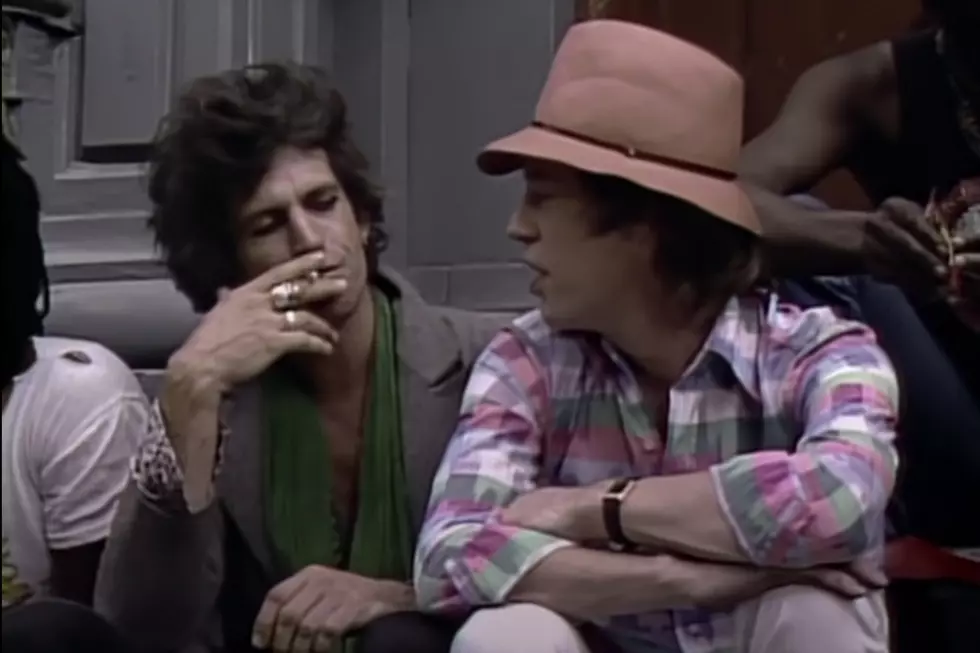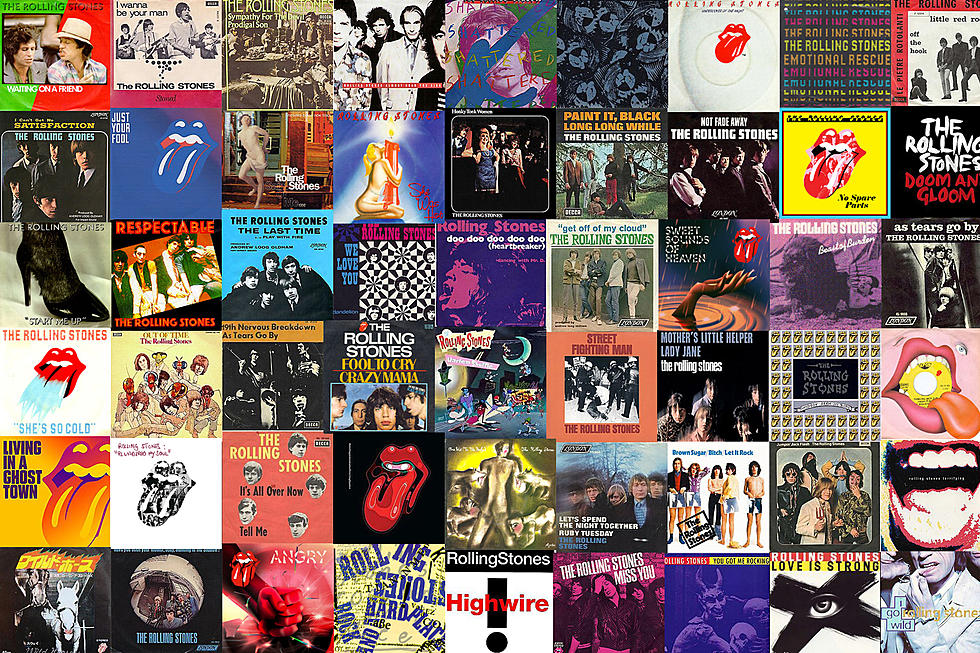
40 Years Ago: Rolling Stones Finally Complete ‘Waiting on a Friend’
"Waiting on a Friend" was one of the oldest Rolling Stones leftovers to find its way onto Tattoo You and also the most fully realized demo.
In fact, Mick Jagger probably could have simply booked some studio time to cut his vocals, and the song might have been considered complete. But then he had the idea to invite saxophone colossus Sonny Rollins to add a solo. These were the key elements that elevated "Waiting on a Friend" to No. 13 on the Billboard Hot 100 after its November 1981 single release.
The Rolling Stones cut the original backing track in 1972 in Kingston, Jamaica, during sessions for Goats Head Soup. The endlessly inventive Nicky Hopkins guests on piano, while the since-departed Mick Taylor serves as lead guitarist.
"We all liked it at the time, but it didn't have any lyrics, so there we were," Jagger said in the liner notes to the 1993 compilation album Jump Back. Much had changed in the interim, however, as Jagger constructed a new narrative from a very grown-up perspective: "Don't need a whore, don't need no booze / Don't need a virgin priest, but I need someone I can cry to / I need someone to protect."
Jagger cautioned against the idea that he was awaiting a new love interest. Instead, he described the lyric as "very gentle and loving, about friendships in the band."
The accompanying video, helmed by The Rolling Stones Rock and Roll Circus director Michael Lindsay-Hogg, traces the same storyline: Jagger is shown hanging out on a stoop on St. Mark's Place in Manhattan before Keith Richards joins him on the way to meet the others at a local pub. (Sharp-eyed rock fans will recognize the New York City brownstone from the cover of Led Zeppelin's 1975 album Physical Graffiti.)
"It's really not about waiting on a woman friend; it's just about a friend. It doesn't matter if it's a man or a woman," Jagger argued years later. "I can see people saying, 'Oh, we're all much older now, Mick's writing this much more compassionate stuff, must be about a real person.' But that's only in their perception of it."
Watch the Video for Rolling Stones' 'Waiting on a Friend'
Jagger admitted to some nervousness about working with the accomplished Rollins, whom he'd met through a mutual friend at New York City's Bottom Line earlier in 1981. Drummer Charlie Watts, a huge jazz fan, wondered if Rollins would even agree to the gig.
"This guy's a giant of the saxophone," Jagger says in Bill Janovitz's Rocks Off: 50 Tracks That Tell the Story of the Rolling Stones. "Charlie said, 'He's never going to want to play on a Rolling Stones record!' I said, 'Yes he is going to want to.' And he did, and he was wonderful."
But only after his wife talked him into it. "I said: 'Man, the Rolling Stones. I don't want to do any record with the Rolling Stones,'" Rollins told The New York Times in 2020. "I'd considered them — and it's faulty — not on the level of jazz. But my wife said, 'No, no, you must do it.' So I said, 'OK, let me see if I can relate to what they are doing; let me see if I can make it sound as good as possible.'"
Their collaboration together for "Waiting on a Friend" was largely unspoken, Jagger added. "I said, 'Would you like me to stay out there in the studio?'" Jagger later told Rolling Stone. "He said, 'Yeah, you tell me where you want me to play and dance the part out.'"
So that's just what Jagger did, and his moves were translated into the lyrical solo that finally completed the long-gestating "Waiting on a Friend." Rollins ended up contributing sax parts to "Slave" and "Neighbours" from Tattoo You, as well.
Years later, Rollins said he was in a Hudson, N.Y., supermarket when his ears perked up. "I heard this song and thought, 'Who’s that guy?'" Rollins told the Times. "His playing struck a chord in me. Then I said, 'Wait a minute, that's me!' It was my playing on one of those Rolling Stones records."
The Rolling Stones' Charlie Watts Year by Year: Photos 1962-2020
You Think You Know the Rolling Stones?
More From Ultimate Classic Rock









